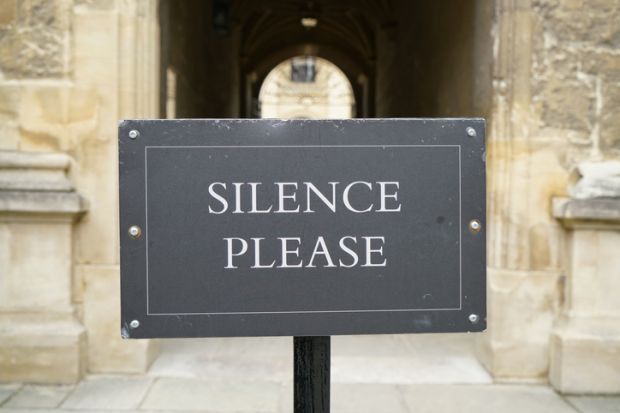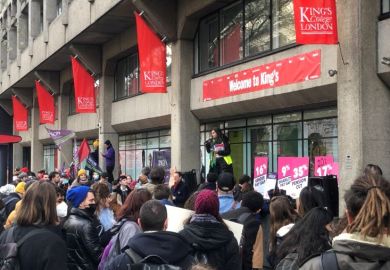Pay negotiations in the UK have begun with discord after unions and employers clashed over the latter’s decision not to present an opening offer.
Unions accused the Universities and Colleges Employers Association (Ucea) of intentionally delaying talks by claiming that it was “not yet in a position” to table an offer at the first meeting on 30 March, a move that they said left staff “in limbo” during the cost-of-living crisis.
In turn, Ucea said it had received the unions’ full claim too late in the process and expressed “disappointment and frustration” at their refusal to discuss its non-pay elements at the meeting.
Five unions representing higher education staff are demanding a pay rise of 2 per cent above RPI inflation – which hit 8.2 per cent in February – and a minimum wage for all of £12 an hour.
The latest round of pay talks has started while a dispute over the last pay award of 1.5 per cent continues, with live ballots at three of the five unions over whether to prolong industrial action into the summer.
“These negotiations take place at a critical moment for our sector, in which our members face spiralling inflation and unhealthy working conditions,” a joint statement released by the unions said.
It added that headline demands had been sent to Ucea on 28 February, giving employers a month to come up with an opening offer that would “address both the serious cost of living crisis facing our members, and the deep-seated discontent in the higher education sector”.
“Given the immense pressure that is facing HE institutions and staff from continued industrial action, and the prospect of more joint action in the near future, we must question Ucea’s judgment in delaying meaningful negotiations, and whether they did in fact have a mandate to delay from their constituent member institutions,” the statement said.
In response, Ucea said that although it had received the headline demands, it did not have the full claim until 23 March – a day after its board had met to prepare for the annual negotiations.
The body has promised to present an offer prior to the next meeting on 25 April and stressed that it was “by no means unprecedented” for the meetings to begin without an opening offer being tabled. The August implementation date for any pay lift will not be affected, Ucea stressed.
Its chief executive, Raj Jethwa, called the unions’ response “disappointing” and said their negotiators were unwilling to “take part in constructive dialogue” over other elements of their claim, which includes demands to create a framework to “eliminate casualised contracts” and “meaningful action” to reduce workloads.
“Employers have entered this year’s talks in good faith,” Mr Jethwa said. “Despite the challenges of the last two negotiating rounds, employers are keen that this year’s round offers the possibility of both progress and jointly agreed outcomes. We genuinely seek to work with the unions on many of the non-pay elements of their claim.”
He said he recognised the impact of high inflation on staff, particularly those at the lower end of the pay scale, but cautioned that higher education institutions “face unprecedented financial challenges.”
Register to continue
Why register?
- Registration is free and only takes a moment
- Once registered, you can read 3 articles a month
- Sign up for our newsletter
Subscribe
Or subscribe for unlimited access to:
- Unlimited access to news, views, insights & reviews
- Digital editions
- Digital access to THE’s university and college rankings analysis
Already registered or a current subscriber?








